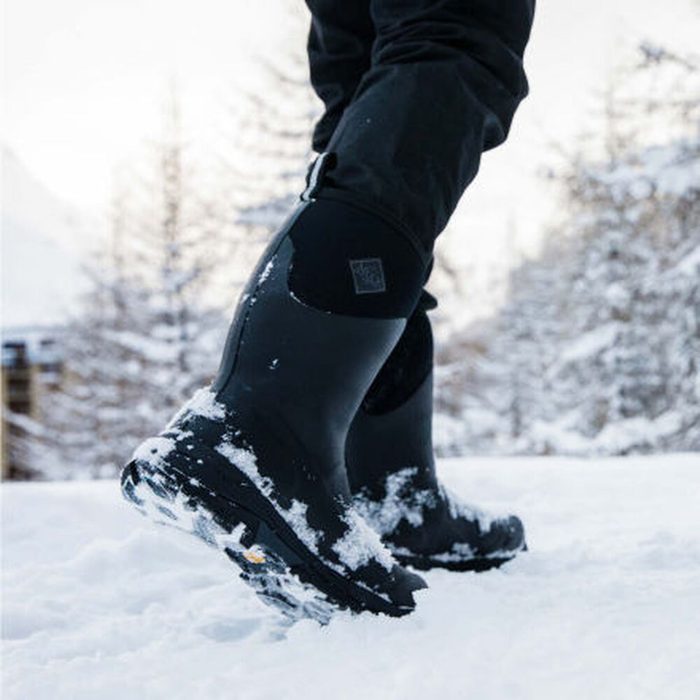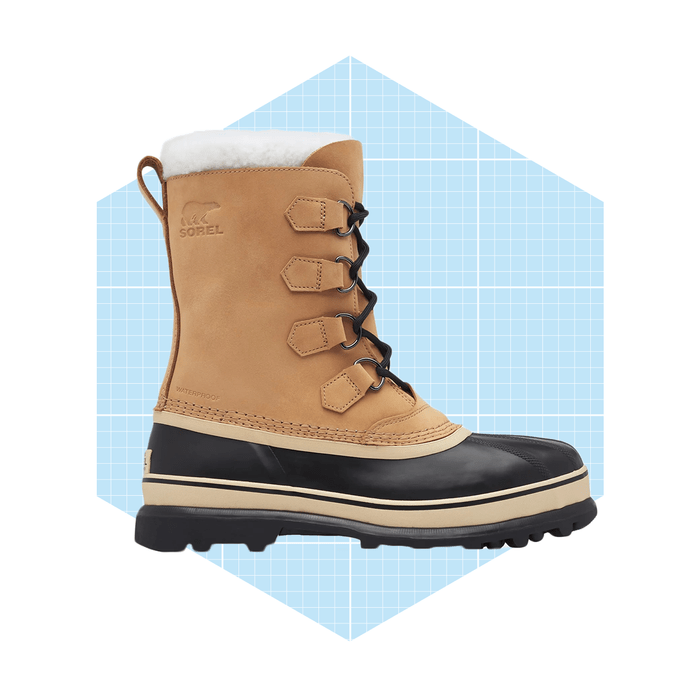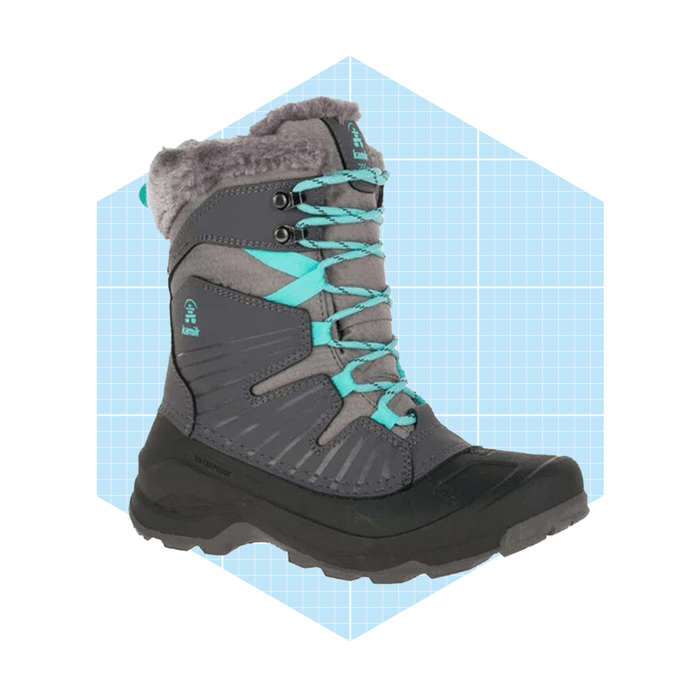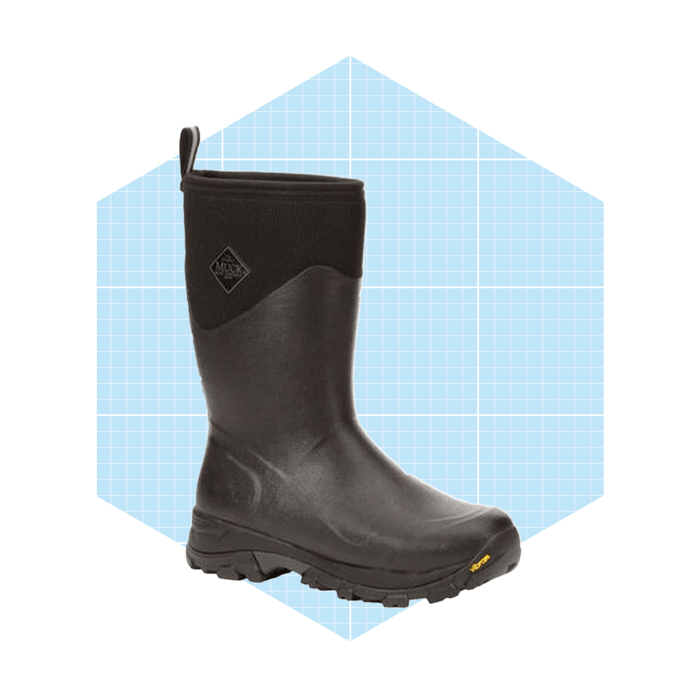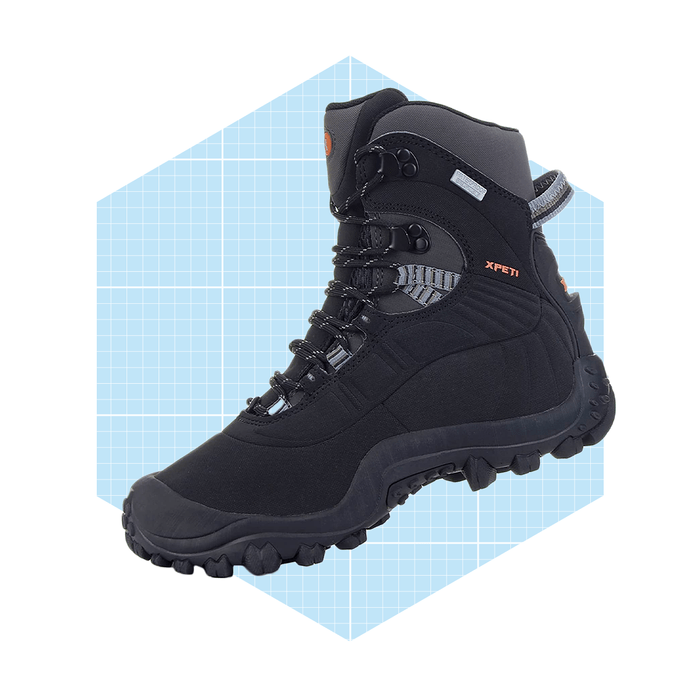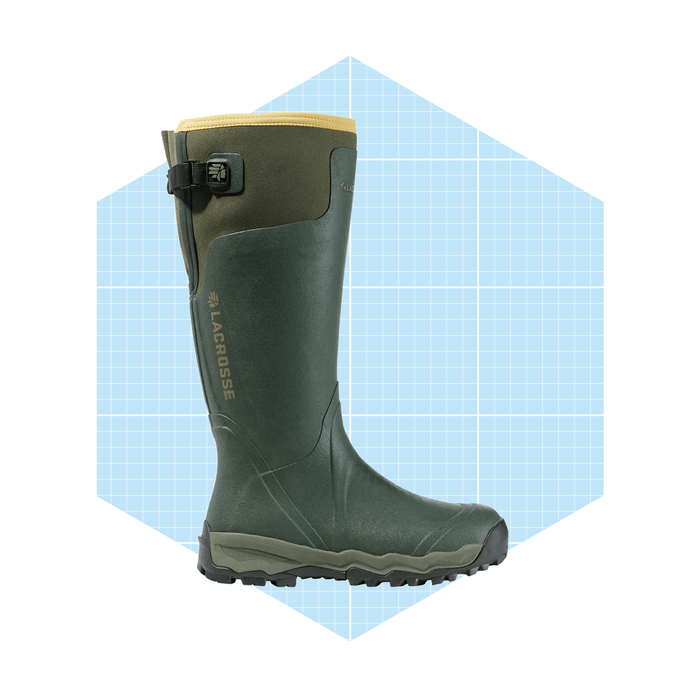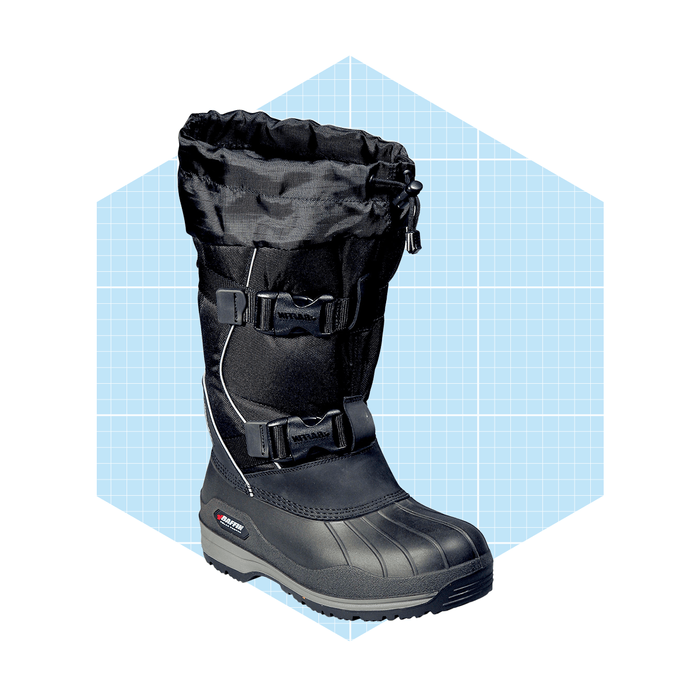Best Overall Snow Boot
Sorrel Caribou
If you’re in a place with moderate to heavy snow, the Sorel Caribous are the best boots to stay warm in winter. The seriously warm style is made to endure wet, slushy messes. Plus, we love the way they look with a sherpa cuff, waterproof nubuck leather upper and lugged rubber sole. The boots even have removable insulation, so you can adjust them depending on the temperature.
Pros
- Warm and waterproof
- Stylish leather and sherpa detailing
- Made to last
Cons
- Some find the fit heavy
Best Value Snow Boot
Kamik Iceland
The Kamik Iceland boots are a more affordable, sportier alternative to the Sorel Caribous. They have all the features necessary to earn best boots-status: Insulation, waterproof exterior, rubber soles and even leather uppers as a stylish bonus. The Icelands are work boots designed for outdoor play and stay comfortable down to -40 degrees Fahrenheit—so you can wear them snowmobiling and ice fishing.
Pros
- Affordable
- Sporty and stylish design
- Waterproof
Cons
- A bit bulky
- Some reviewers report a tight fit at the top
Best Rubber Snow Boot
Muck Boot Arctic Ice Vibram
Traverse slippery surfaces, wet ice and snow-covered walkways in the Muck Vibram boots. The all-terrain grip provides advanced traction so you won’t worry about loosing your footing. The waterproof exterior has a thick rubber coating from top to toe to repel liquids (it also makes it easy to wipe them down).
A cozy fleece lining adds extra warmth for extreme conditions, and an anti-microbial footbed insert helps with odor control and moisture management. Add even more warmth to your ensemble with a self-heating jacket or heated vest.
Pros
- 100 percent waterproof
- Easy to clean
- Advanced traction
- Lightweight
Cons
- Pricey
Best Snow Boot for Hiking
Xpeti Thermator
The Xpeti Thermators sport a similar construction to regular hiking boots, but they’re designed specifically for winter trails. A comfortable padded insole offers shock-absorbing cushioning, while a waterproof mesh construction keeps feet dry and cool.
The rubber outsole with multi-directional lugs provides a higher traction grip to suit any outdoor terrain. With 200 grams of insulation, your feet stay warm in temperatures as low as -13 degrees Fahrenheit.
Pros
- Waterproof with an optimal grip for hiking trails
- Durable
- Lightweight
Cons
- Not designed for deep snow
- Reviewers suggest choosing a half-size up than your normal size
Best Tall Snow Boot
L.L.Bean Lacrosse Alphaburly Boots
This L.L.Bean pick combines the waterproof performance of a rubber boot with the agility of an athletic shoe. The active fit makes them easy to put on, and a kick-off heel plate allows for quick hands-free removal—important features for a tall boot. Plus, neoprene insulation provides warmth in the snow or rain, and a quick-drying moisture-wicking jersey knit liner keeps feet dry and comfortable.
Pros
- Easy to pull-on and quick hands-free removal
- Completely waterproof
- Adjustable gusset at the top fits any size calf
- Durable
Cons
- Heavy
Best Snow Boot for Extreme Cold
Baffin Impact Winter Boots
Baffin Impacts are the best snow boots for extremely bitter conditions. Breathable open-cell foam provides warmth, while hollow fiber insulation traps air to maintain a constant temperature. The rugged nylon upper features dual buckle closures and a drawstring top for a snug fit that keeps the elements out.
A thermoplastic rubber outsole remains flexible even in frigid climates. With a -148 degrees Fahrenheit comfort rating, these kicks are ideal for outdoor enthusiasts or construction pros.
Pros
- Extremely warm
- Supreme traction in slush and snow
- Heat-reflective fabric
- Drawstring top
Cons
- Pricey
- Bulky and heavy
What to Consider When Buying Snow Boots
Nobody wants to walk around with cold, wet feet, so a waterproof sole is imperative. Some winter boots are treated with a water-repellent coating, which is fine for more mild climates. But if you’re dealing with heavy-duty snow, you’ll want a 100 percent waterproof style to lock out moisture.
When facing extreme temps, insulation is the key to staying warm. Heat reflective layers also help battle the frigid cold, without adding any bulk. A faux-fur or sherpa lining may be suitable for less intense weather, and don’t forget a thick pair of socks to up the coziness factor.
Depending on where you’re going—hiking in the woods or taking out the trash—a boot’s traction might be even more important than its waterproof capabilities, especially if you encounter a lot of ice and slush in the winter. Snow boots with the best grip and traction typically have a serrated, thick rubber sole.
How We Chose the Best Snow Boots
As shopping experts, our only job is to help you find a winning product. We start with the research and reporting basics—what products are made of, what they look like and how much they cost—to ensure that we’re only recommending the buys that are worth your time and money. Then, we research the features that speak to the product’s quality, taking advice from industry insiders and subject matter experts on what makes a product a smart value (or worthy of a splurge). Finally, we do the work of combing through user reviews to see how real people interact with the product, and if it stands up to the test.
Shop smarter with our expert recommendations for tools, gear and money-saving deals on can’t miss DIY and home products. Sign up for the Stuff We Love newsletter.
